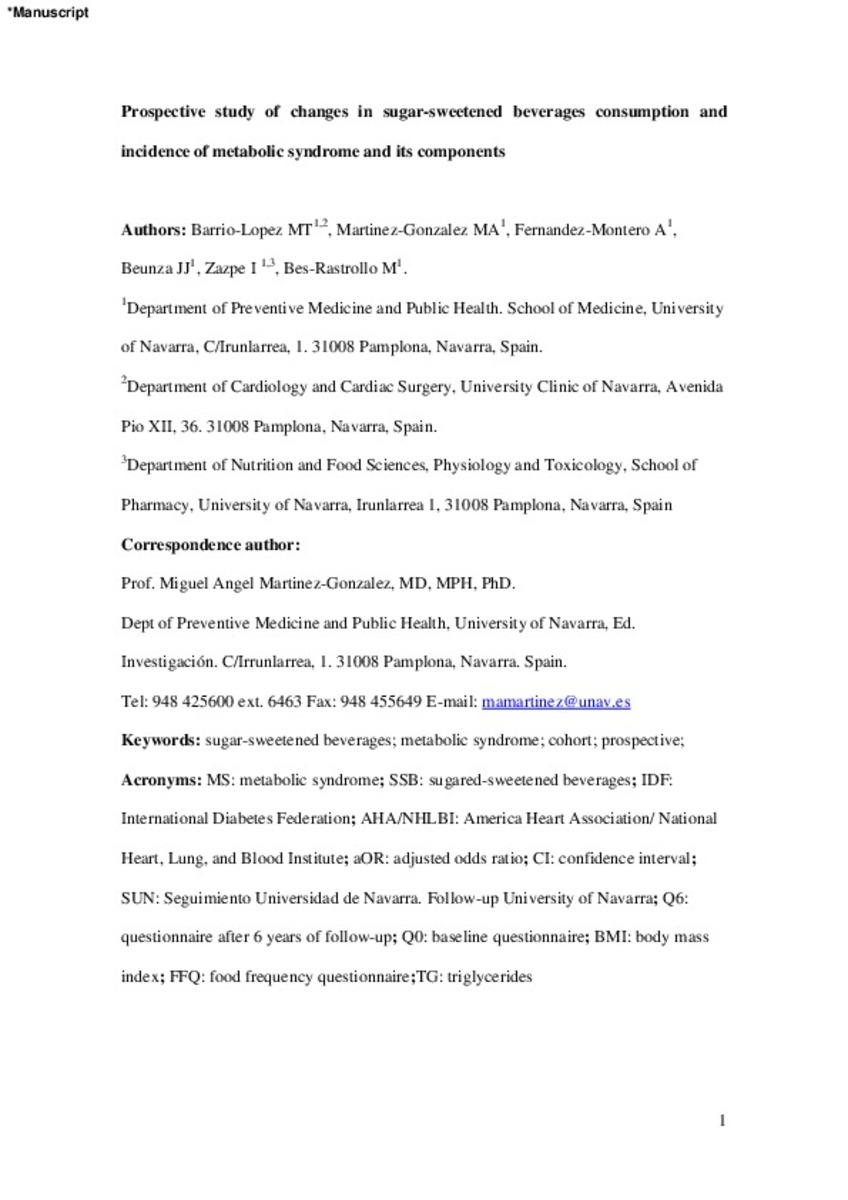Prospective study of changes in sugar-sweetened beverages consumption and incidence of metabolic syndrome and its components
Keywords:
Sugar-sweetened beverages
Metabolic syndrome
Cohorts
Prospective studies
Citation:
Barrio-Lopez MT, Martinez-Gonzalez MA, Fernandez-Montero A, Beunza JJ, Zazpe I, Bes-Rastrollo M. Prospective study of changes in sugar-sweetened beverages consumption and incidence of metabolic syndrome and its components. Br J Nutr. 2013;110(9):1722-31.
Statistics and impact
0 citas en

Items in Dadun are protected by copyright, with all rights reserved, unless otherwise indicated.








